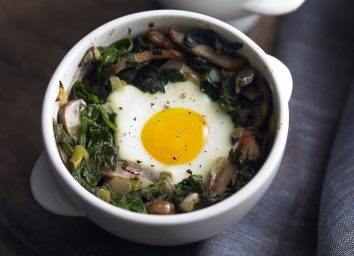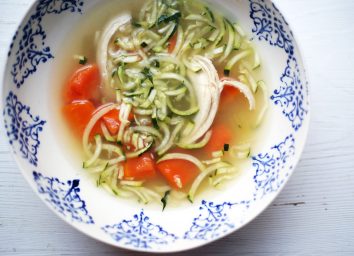7 Foods That Help With a Sore Throat

Pretty much everyone has experienced pharyngitis (or commonly known as a sore throat) at some point in their lifetime. Your throat has this scratchy sensation, and the overall discomfort makes it hard to swallow or taste anything. Sore throats are caused by many factors, such as viruses (including the coronavirus), bacteria, and allergies. Anytime we get a sore throat, viruses and bacteria affect our respiratory tract (nose, mouth, trachea, and lungs).
“The throat is considered the entryway (or first destination) to the respiratory tract. When viruses and bacteria enter our throat they cause a lot of inflammation and redness, which can turn into white spots,” says Dr. Georgine Nanos, M.D., of Kind Health Group in Encinitas, California. And while you have a sore throat, it’s important to know what foods cause more harm than good. It can help prevent further irritation and ease your throat.
Apart from being annoying, the most common cause of a sore throat is a viral infection. In the pandemic we are currently experiencing right now, knowing how to treat symptoms of a sore throat caused by a viral infection can be vital. Here are some foods that can ease the symptoms.
Eggs

A lot of us know that eggs are a good source of protein. But they can also help with decreasing the irritation and inflammation that can accompany a sore throat. “The best foods for sore throats need to meet three criteria: soft and easy to swallow, warm or room temperature, and non-acidic,” says Dr. Dimitar Marinov, M.D., Ph.D., and Assistant Professor at the Department of Hygiene and Epidemiology at the Medical University of Varna in Bulgaria.
Eggs are easy to swallow and non-acidic, making them the perfect option. You can eat them scrambled, boiled, or however you like!
Chicken Soup
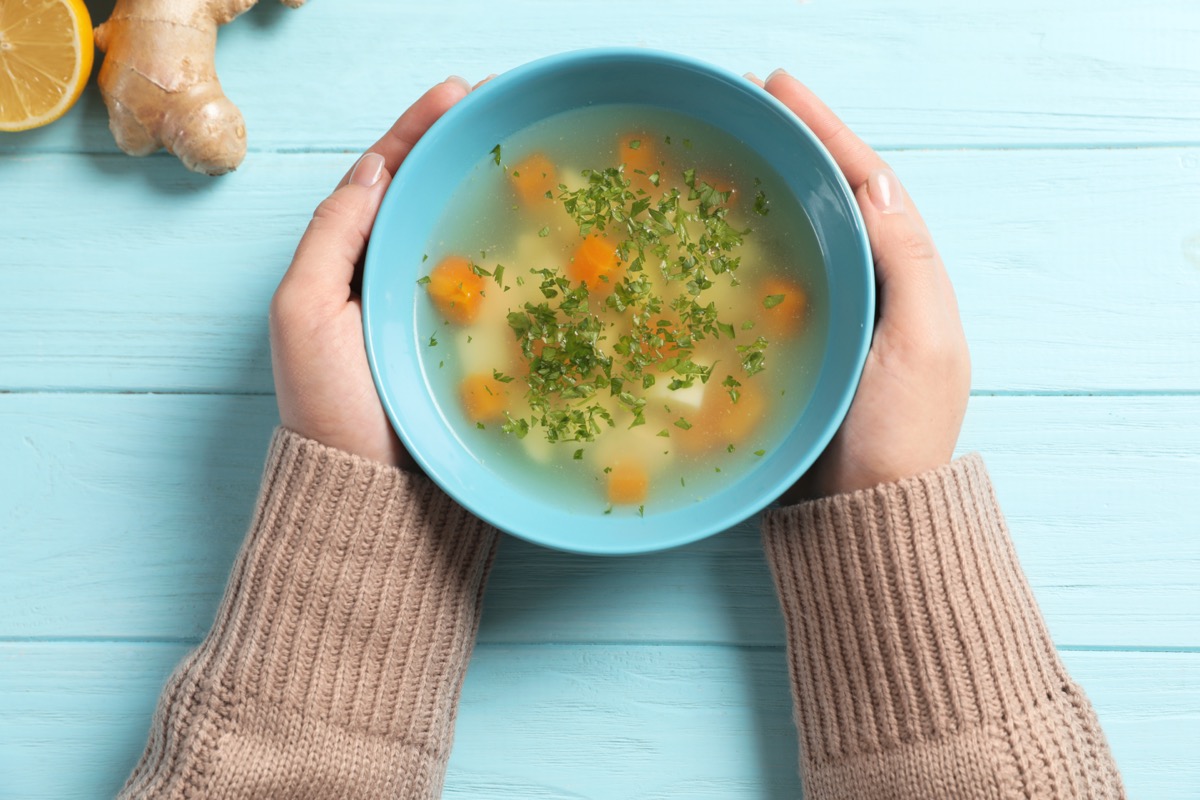
Chicken soup has been a staple dish for the cold and flu. Apart from the warmth and delicious taste, it can help you get better. “Chicken soup, in particular, has been shown to inhibit the movement of certain white blood cells, which are the cells responsible for inflammation, which suggests that the soup has anti-inflammatory activity,” says Dr. Gary Linkov, a plastic surgeon in New York City.
Chicken soup is, in fact, good for the soul. But make sure not to add any irritating spices to the soup or eat it with crackers, as it can further dry the throat. Try out our Homemade Chicken Noodle Soup Recipe.
Garlic
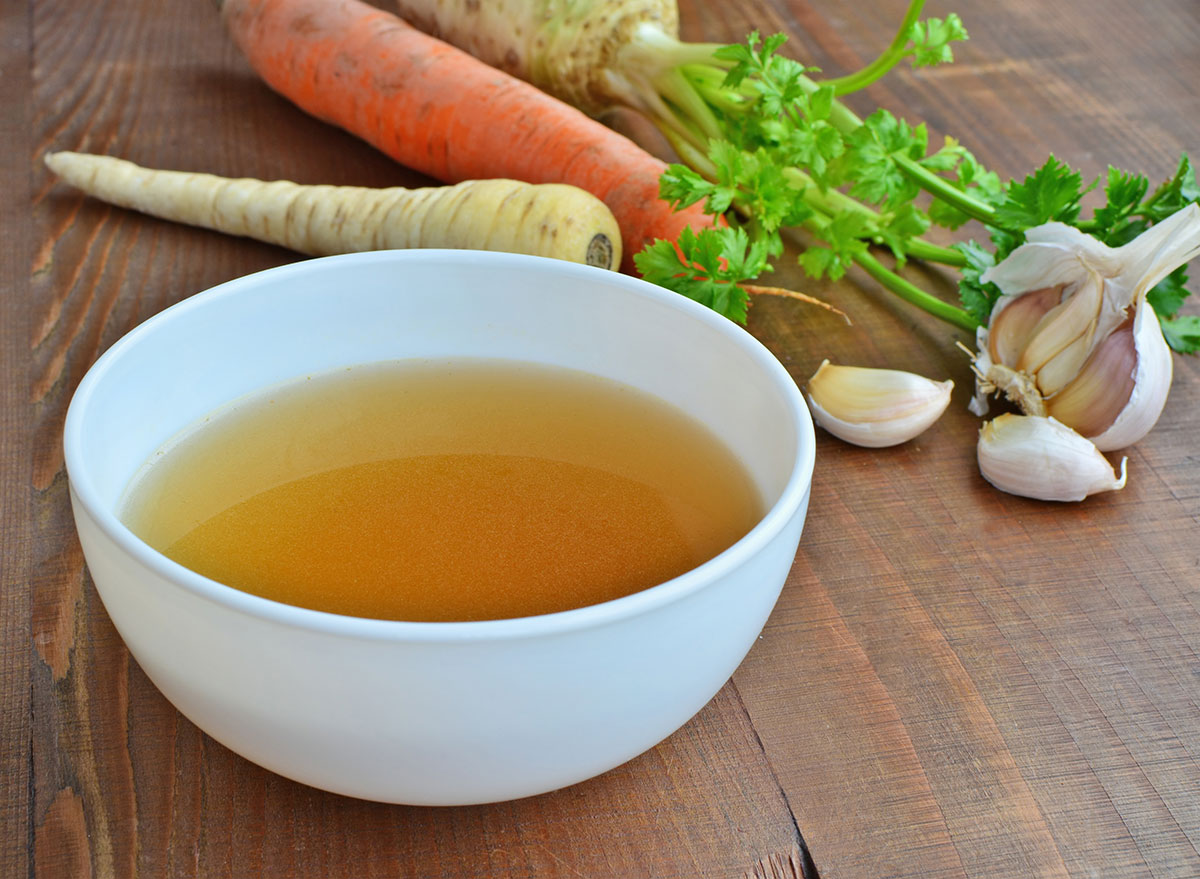
Garlic is more than just a seasoning. “The approach to a sore throat can be two-part, decreasing the number of bacteria and viruses and decreasing further irritation to the throat,” says Dr. Leann Poston, M.D., of Invigor Medical in Kennewick, Washington. Garlic has anti-inflammatory and anti-bacterial properties that help soothe throat inflammation and decrease the number of viruses.
You can add garlic to soups, broth, tea, or plain milk. Drinking these in warm or room temperature will help relieve pain and itchiness during a sore throat. To better help fight off viral attacks and avoid the annoyance of sore throats, you can also check out our list of anti-inflammatory foods.
Fish
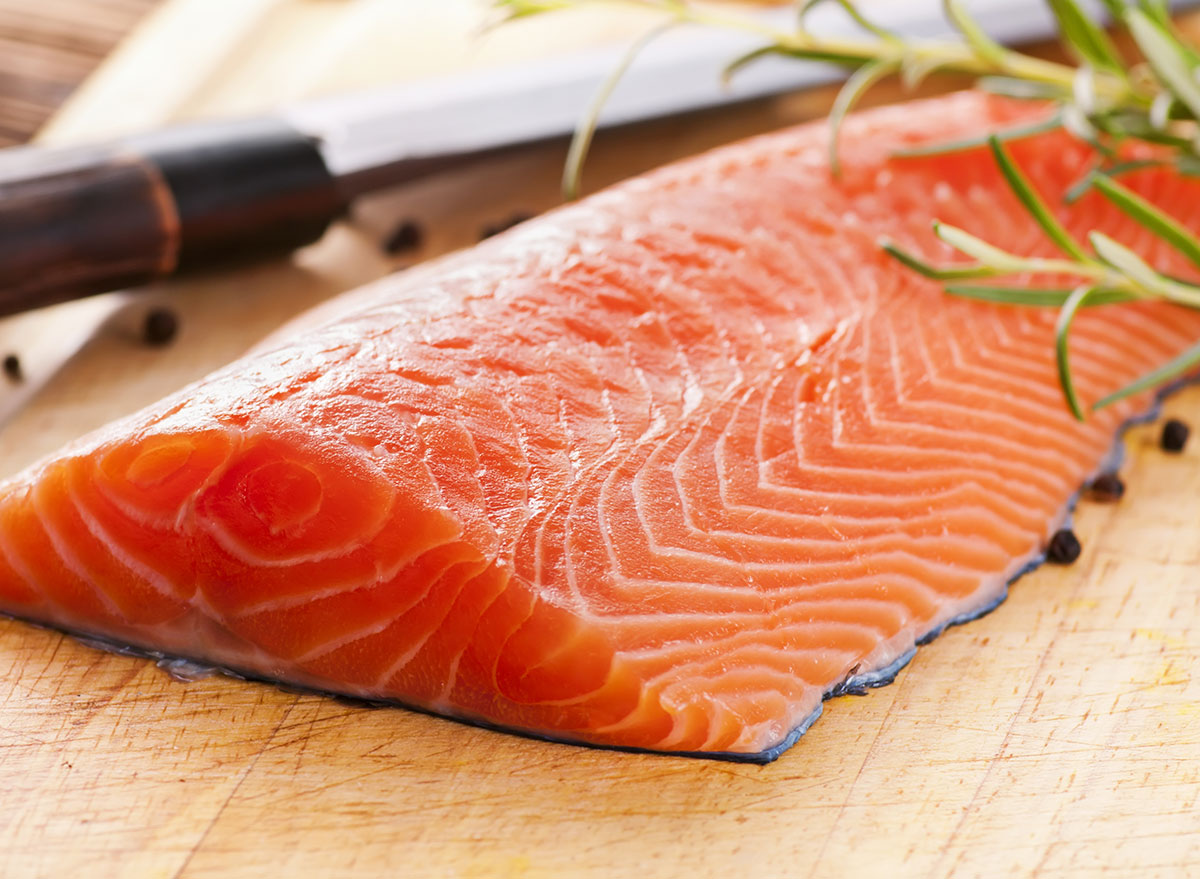
Fish provides protein and a good source of omega-3 fatty acids. The consumption of these acids helps with chronic diseases such as heart disease and diabetes, inflammation and brain health. “Consuming fish gives you proteins and zinc, helping you to fight the infection,” says Dr. Rashmi Byakodi, editor of Best of Nutrition. Eating warm meat can soothe the throat as well.
Cold Foods
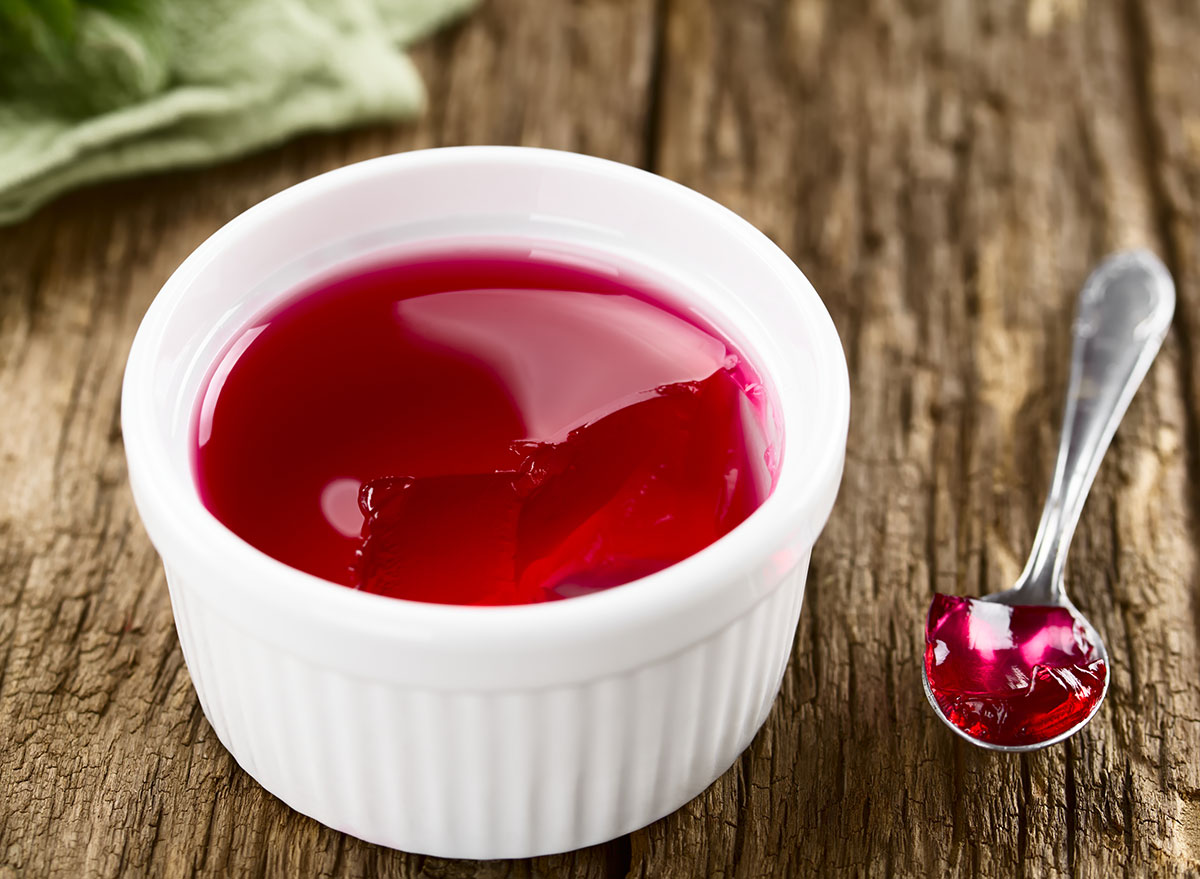
If the inflammation is causing too much of a burning or itchy sensation, cool foods like popsicles, jello, and ice cream can help numb the pain. “Cold foods can help decrease the activity of the nerve endings in the throat that signal pain, thus reducing pain and improving symptoms,” says Anna Binder McAsey, registered dietitian and owner of Rethink Nutrition in Manhattan, Kansas.
Just be mindful of the sugar content—popsicles and ice cream are still considered junk food, after all.
Mashed Potatoes
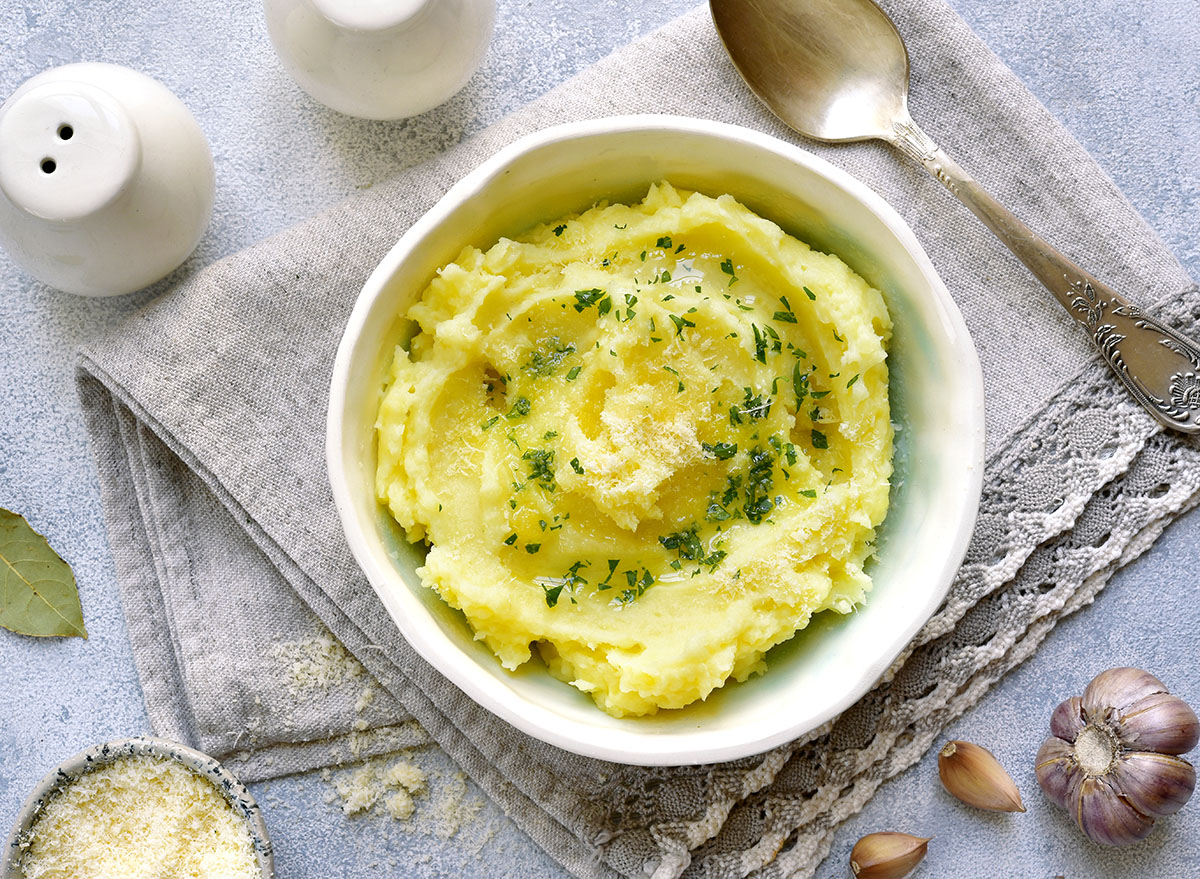
The holy grail of side dishes can amp up more than just your dinner. Warm foods like mashed potatoes can help “promote salivation and increase mucus production from the nose, both of which help lubricate the throat,” says Dr. Linkov. By increasing the mucus production, you are able to release the toxins in your body. Foods with a soft texture won’t further irritate your throat, either.
Foods with Vitamin C
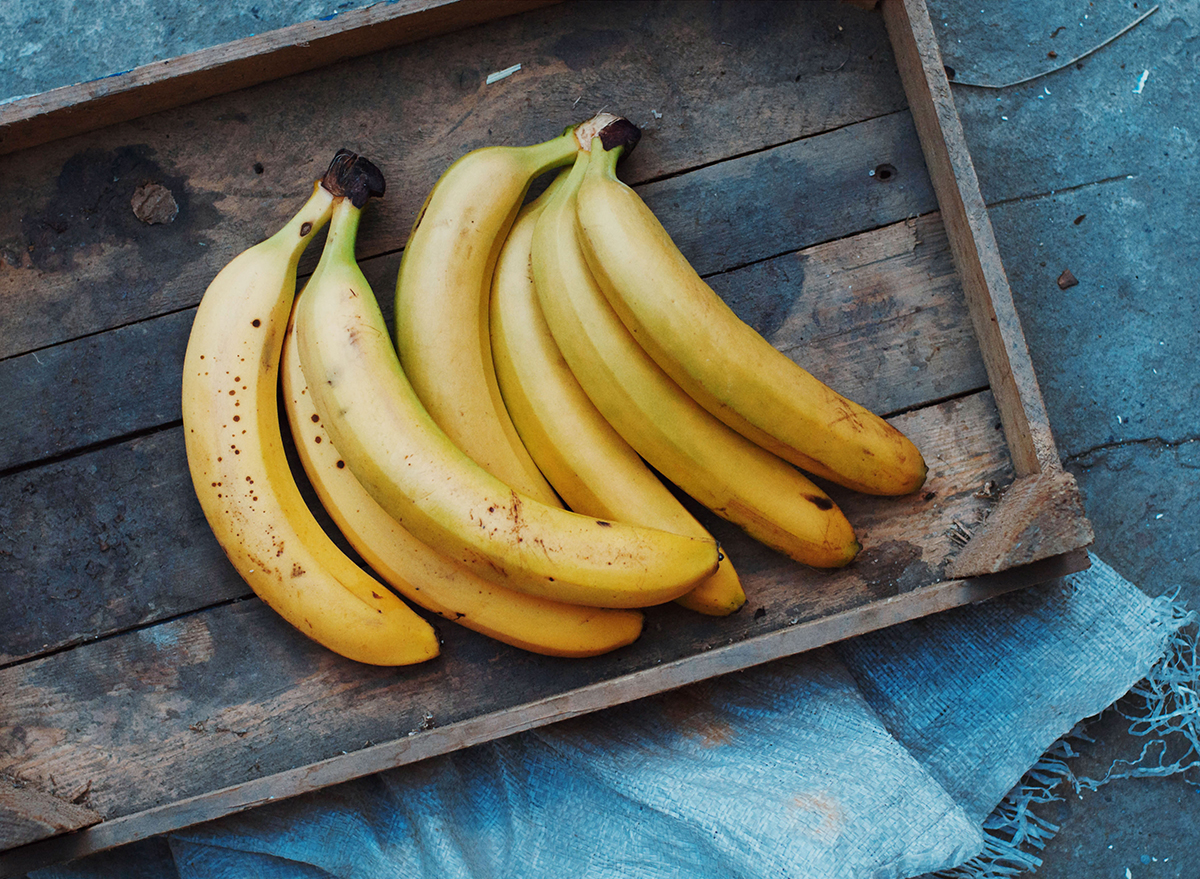
Most of us are aware that vitamin C is a good immune booster. For people with sore throats from a viral infection, “I often recommend a high dose of vitamin C—up to 3,000 milligrams daily—to boost the immune system and help you recover more quickly,” says Dr. Nate Favini, medical lead at telehealth provider Forward. Taking vitamin C pills can help, but opting for natural foods that contain vitamin C is highly recommended. Bananas, berries, and kiwis are rich in vitamin C, and they are not acidic. Despite contrary belief, oranges are not an ideal choice, as they are acidic.
Foods and drinks that moisturize the throat and increase fluids are helpful in easing the inflammation and irritation of a sore throat. When you’re in doubt, just remember to pick foods that are soft and non-acidic, and you should be feeling better in no time.
